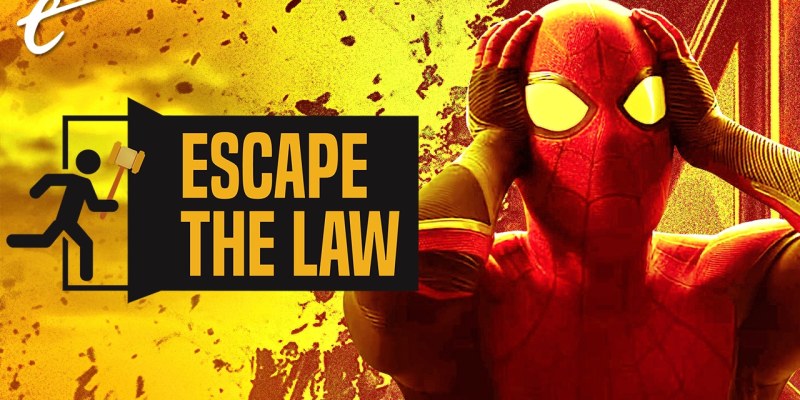Last week, Marvel made headlines when it filed a lawsuit against the creators of its most iconic characters, leading to a flurry of headlines suggesting — in true “sky is falling” fashion — that “Marvel is losing rights” to Spider-Man, Iron Man, and the Avengers, with one commentator even suggesting that DC Comics could end up with the rights to Spider-Man and the Avengers.
What the (Don) heck is going on here?
Copyrights are peculiar. Like other kinds of property, copyrights can be sold, transferred, or licensed. But the law places a significant limitation on copyright transfers. Under the law, a copyright holder is prohibited from making a permanent transfer. More specifically, copyright holders can only sell their copyright for 35 years (transfers made prior to 1978 can last 56 years). After 35 years (or 56 years, for older works), the copyright holder can “terminate” the transfer and reclaim ownership over the copyright. In this sense, we can think of copyright transfers as the IP equivalent of leprechaun gold.
What’s interesting about copyright reversions is that they are involuntary and unwaivable. That is to say, the law does not allow copyright owners to effectuate a permanent transfer of their copyright, even if they really want to (and even if they are unaware of the reversion right). Any provision stating otherwise would be unenforceable.
This policy is motivated by the fact that it can be difficult to determine the value of a copyrighted work at or near the time of its creation. By limiting transfers to 35 years, the statute prevents copyright owners from being short-changed by requiring interested parties to return to the negotiating table after the true value of the copyrighted work is known.

Marvel and Copyright Reversions
Marvel’s hottest characters — including Spider-Man, Iron Man, Doctor Strange, etc. — made their debut in the ’60s. Earlier this year, several of the artists and writers who created those characters, including Lawrence Lieber (Stan Lee’s brother) and the estates of Steve Ditko, Don Rico, and Don Heck, served copyright transfer termination notices on Marvel, and they claimed that Marvel would lose its rights to those characters in 2023.
To avoid that rights reversion, Marvel filed suit, claiming that the termination notices are improper. Marvel’s position is straightforward. Under the law, copyright terminations only apply where a copyright has been transferred in the first place. Marvel’s position is that the copyrights at issue here are not subject to termination, since Marvel was the original owner of those copyrights in the first place.
The controlling question here is whether the copyrighted works were created by the authors and then transferred to Marvel — in which case the original authors (or their estates) would have a right to terminate those transfers — or whether Marvel created the stories and characters as “works for hire,” in which case there would be no transfer to terminate.
If the creators win on that question, they will have to overcome another obstacle — when works involve multiple authors, termination can only take place if a majority of those authors agree to the determination. Thus, the creators would have to identify the joint authors for each character / story and would have to persuade those authors to join the termination request.

This Lawsuit Is a Walk in the Park for Marvel
Marvel doesn’t have much to worry about when it comes to the termination notices. In fact, Marvel has already had the work-for-hire debate and come out on top. In 2009, the estate of Jack Kirby filed similar copyright termination notices in connection with Spider-Man, Thor, the Fantastic Four, Hulk, and a host of other characters. As happened here, Marvel responded by challenging the termination notices in court. Both sides collected evidence — including through depositions of industry titans Stan Lee, John Romita, Roy Thomas, and current plaintiff Lawrence Lieber.
Based on the evidence, the court concluded that Kirby’s creations were works for hire, since Marvel directed his work, told him which characters to create, exercised editorial control, and paid by the page. Kirby’s estate appealed the ruling but lost (again) on appeal. The courts reached similar decisions in connection with ownership disputes over Blade.
The current copyright termination notices seem to implicate the same issues as in the Kirby case and even involve the same attorneys. Significantly, it does not appear that Kirby’s relationship with Marvel was substantially different from the relationship between Marvel and Heck / Lieber / Ditko / Rico — each of the creators used the “Marvel Method,” each was hired for a specific project, and each was subject to Marvel’s editorial control. In sum, we have what amounts to the same facts, the same law, and the same lawyers. It thus seems reasonable to conclude that the courts will reach the same outcome.
Is it possible that things could turn out differently? I suppose there’s a chance. But as the above analysis indicates, it would require specific evidence that one or more of the creators was treated differently from Marvel’s other creators at the time. All things considered, that seems pretty unlikely.

That’s not to say that it was a mistake for the creators to file copyright termination notices. While Kirby’s estate lost (twice) in the courts, the parties ultimately settled the case, rather than risk a further appeal at the Supreme Court. Given the significance of Marvel’s IP, I wouldn’t be surprised if Marvel offered a settlement — even a fairly generous settlement — to the creators here, as even $10 million would be worth it to avoid even the slightest risk that Marvel would lose rights.
To put things in perspective, the most recent Spider-Man movie, Far From Home, grossed over $1 billion at the box office. Even if we ignore all other sources of revenue, then even a 1% chance that Ditko’s estate would prevail would equate to a $10 million loss for Marvel. In fact, the number is much higher than that, since there are other films, comics, video games, etc. Thus, the most likely outcome here is a win for everyone, as Marvel will retain its rights and the creators will walk away with a nice payout.
